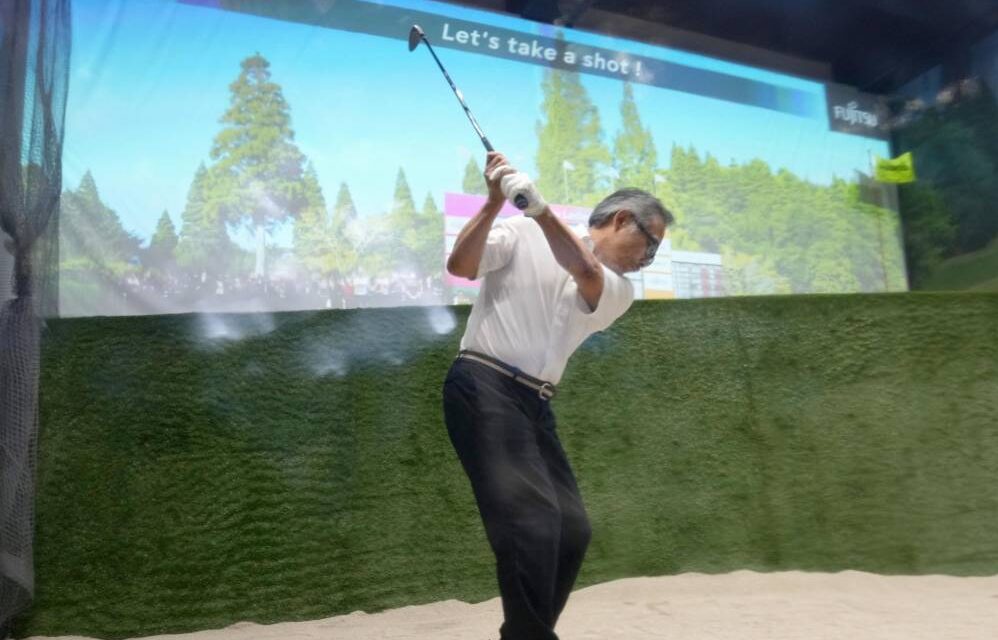Firms, researchers tout AI at Japan electronics show

Major companies, startups and researchers were among 810 exhibitors on-site for the opening of Japan’s major annual electronics show on Tuesday, seeking collaboration in the wider use of artificial intelligence (AI) in sectors such as health care and entertainment.
Nearly half of the exhibitors at this year’s Combined Exhibition of Advanced Technologies (Ceatec), held at the Makuhari Messe convention center in Chiba near Tokyo, are showcasing products or technologies that use AI.
The number of startups and university research institutions exhibiting reached a record 232, about 20 percent more than last year.
The Japan Electronics and Information Technology Industries Association (Jeita), Ceatec’s organizer, said the event provides a platform for cross-industrial collaboration to promote AI use and spur innovation, which is reflected in the increased number of researchers and startups involved.
Uncertainty
“The world is facing an unprecedented level of uncertainty due to geopolitical risks and tariff policies. To achieve sustainable growth and development amid this wave of transformation, it is essential now, more than ever, to utilize the power of digital technology,” said Kei Uruma, chair of Jeita and CEO of Mitsubishi Electric Corp.
The organizer said more exhibitors are displaying AI products and services designed for use by the general public, reflecting how the technology now has wider applications after originally being focused on industrial and commercial purposes.
A joint booth operated by cosmetic maker Kao Corp., food and beverage company Kirin Holdings Co. and beauty product website operator Istyle Inc. exhibits technology that analyzes the condition of the skin on a subject’s face by collecting RNA molecules contained in skin oils.
RNA technology
“When Kao developed the technology to analyze RNA contained in skin surface for the first time, we wanted to explore this usage with other partners,” said Yoshiko Goto, a Kao spokesperson.
Through cross-industrial collaborations, Goto cited the possibilities of using RNA analysis technology to develop personalized dietary supplements, to carry out more detailed health examinations, or give fitness recommendations.
From academia, the laboratory of Tokai University associate professor Takayuki Kosaka joined the event in the hope of finding new partnerships related to his “Crying Baby” robot that enables users to experience the difficulty and stress of caring for a newborn.
The robot cries to demand diaper changes and to be picked up, as well to communicate hunger. It also consumes milk, which can be excreted as “urine.”

















